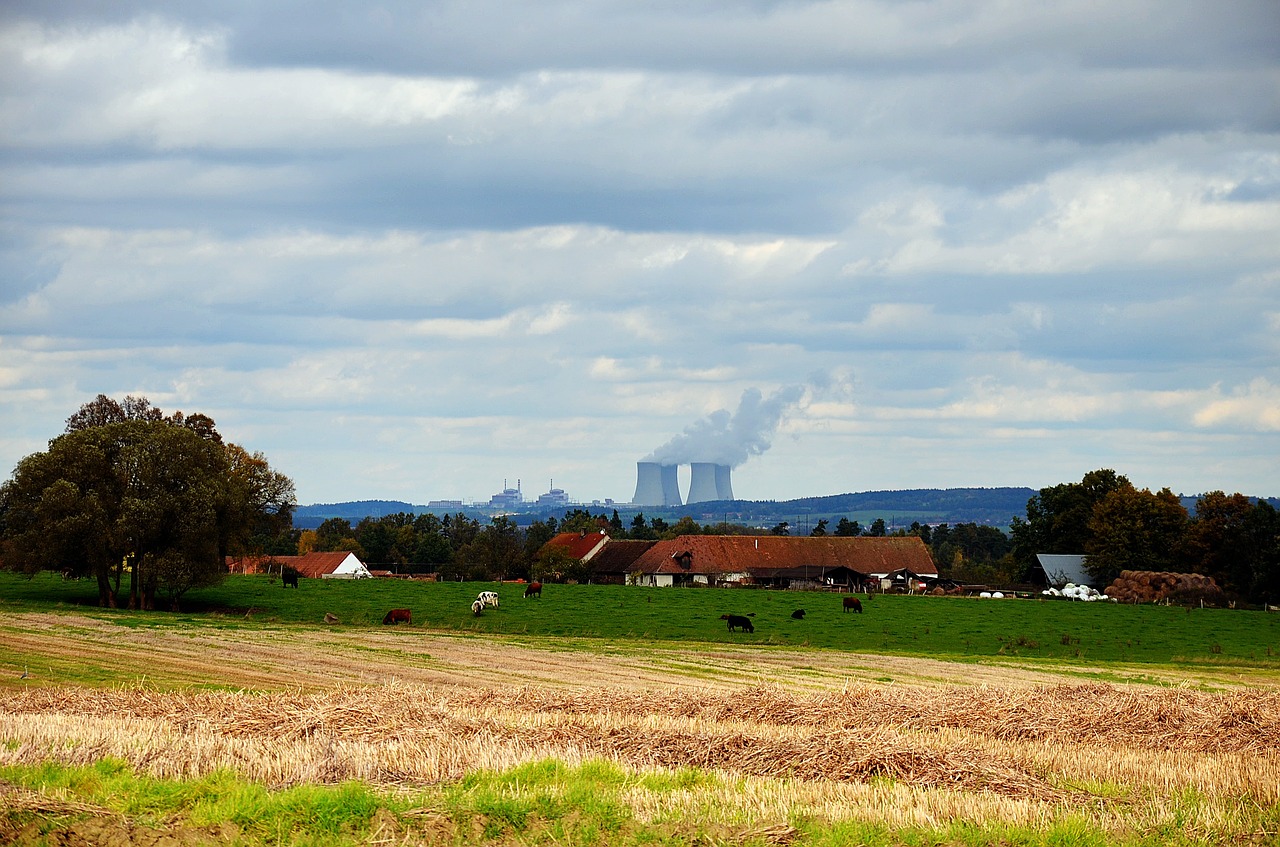
*Updated 2025
In recent years, nuclear power has been hailed as panacea for emissions-free energy, and governments across the globe have started renewing their commitments to nuclear energy. But the 2011 meltdown of several reactors in Japan’s Fukashima nuclear complex, the HBO miniseries about the Chernobyl nuclear disaster, and, more recently, a Russian drone striking the former Chernobyl nuclear plant, have stirred ghosts from the past and have cast doubt on the safety and viability of nuclear an energy staple.
Are the fears surrounding nuclear power justified, or do they exaggerate the industry’s relatively rare incidences of “worst case scenarios”? Given the 2024 UN climate report, which warns of the growing impact of climate change on life worldwide, the current US administration and its fellow global partners may want to reconsider widespread dependence on fossil fuels. As such, nuclear energy as a viable alternative is worth reconsidering.
Below, we’ll explore three reasons in favor of expanding nuclear power, and three reasons opposing it.
Nuclear Now!
Nuclear energy can help win the fight against climate change.
The burning of fossil fuels has been fingered as a main cause of global warming. Without a doubt, nuclear energy has a critical role to play in curbing the carbon emissions that accelerate global warming and climate change. Unlike fossil fuels, nuclear energy is an emissions-free, climate neutral power source. Unsurprisingly, France and Japan, the world’s biggest nuclear energy consumers, also have the world’s lowest rate of CO2 emissions, demonstrating nuclear energy’s ability to meet their energy demands while helping to make good on its climate commitments. Following the trend, in the spring of 2019, the US signed a deal with India, the world’s third-largest oil buyer, to build six nuclear plants there. To continue bolstering its energy ties, the US is reportedly in the process of removing restrictions on India’s nuclear entities. Time will tell if this effort to expand nuclear energy over fossil fuels will come to fruition.
Nuclear energy is a highly efficient energy source.
Earth’s booming population requires ever larger amounts of energy. As such, nuclear energy may well be the most efficient way to keep up with the demand. The energy released from nuclear fission is 50 million times more powerful than ordinary chemical reactions, like those produced by burning fossil fuels. The small amount of fuel required to produce vast amounts of energy not only keeps nuclear energy cheap, but it also means that the Earth’s uranium deposits can potentially power humanity for centuries (at current consumption rates).
Nuclear energy makes the world a safer place.
Nuclear energy is a critical element for non-proliferation. In the 1980s, at the height of the nuclear arms race, there were 65,000 nuclear weapons. Today, there are 16,000 nuclear warheads thanks to the Megatons to Megawatts program, which converted the weapons’ grade uranium found in Russian warheads to nuclear fuel. The program also powered the US with 10% of its energy needs for 20 years – not a bad kickback for ridding the world of 500 tons of highly enriched uranium that would otherwise have been used in weapons of mass destruction. Potentially, the remaining 16,000 warheads could be used to power the entire US for six years. If you’re a fan of disarmament, go nuclear.
Nuclear Never!
Nuclear poses health and environmental threats.
We don’t have foolproof solutions for radioactive waste. Some containers leak, others explode, and both can lead to environmental contamination. Uranium extraction is no less problematic. Uranium mining can potentially unearth toxic residues like radon that poison nearby air and water supplies. Such contamination is impossible to clean, persists for thousands of years, and has dire implications for human health. One Stanford University study notes an upswing in lung cancer cases in communities which lived near a large expanse of uranium mines. That’s bad news for residents of Texas, Wyoming, Utah, and Nebraska, where the US does most of its uranium mining.
Taxpayers shoulder a heavy financial burden for the nuclear energy industry.
Although the commercial nuclear energy industry is mainly privatized, the US government offers it generous support in the form of tax subsidies, low-interest loan guarantees, and liability caps. More than helping to fund the construction for nuclear reactors, the government has also committed the public to fund the nuclear industry’s accidents. Whereas fossil fuel companies are required by law to clean and restore any damage they cause at their own cost, as of 2011, nuclear companies were exempt from responsibility if the damage is too extensive – a strange exception given the fact that nuclear accidents are inevitably more expensive, more dangerous, and farther-reaching than oil spills.
Nuclear programs lead to geopolitical instability.
The raw materials and technology required to generate nuclear energy can be manipulated to produce weapons of mass destruction. Countries like Japan, who have no apparent desire to develop nuclear weapons, nevertheless hang onto stockpiles of plutonium and uranium. Doing so would make it exceedingly easy for them to develop nuclear weapons and set a precedent for other countries to follow. The international “on your honor policies” that govern civil use of nuclear power provide little comfort or security when one considers the volatile countries like Iran, Pakistan and North Korea, which have acquired weapons despite these policies. And let’s not forget India and Pakistan’s increasingly heated tensions over Kashmir. Nuclear energy has the potential to enable its owners to dramatically alter the world order, a worrying prospect for governments and individuals alike.

The Bottom Line: Nuclear energy can be an effective tool for mitigating the problems posed by burning fossil fuels. Moreover, the continued exploration of new nuclear technologies, like fusion, may even yield the world’s first waste-free energy. But these advantages must be weighed against nuclear’s distinct disadvantages, namely, radioactive pollution and the danger of increased nuclear proliferation. Do you think nuclear power will advance or ruin humanity?









